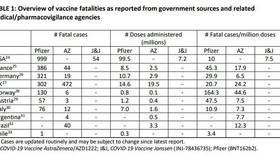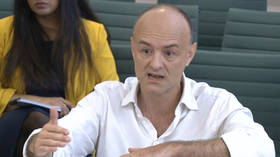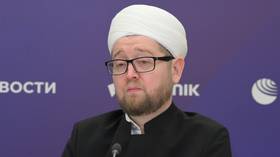Western media ignore AstraZeneca’s call for more data on Covid-19 vaccine safety, cry ‘Russian meddling’ instead
While breathlessly claiming a PR effort that “could be linked” to Russia, major Western outlets are turning a blind eye to the very real report, authored by AstraZeneca, asking for better standards of data about vaccine safety.
According to the French outlet Numerama, a “mystery agency” named Fazze has reached out to French social media influencers and offered them talking points to “denigrate” the Pfizer vaccine. However, Numerama stops short of accusing Russia of anything, saying merely that a LinkedIn search for Fazze found “only one employee, who claims to have done internships for Russian companies before,” and that the campaign “echoes most of the arguments that the official Sputnik V vaccine account shares on Twitter.”
French news site @Numerama got hold of a copy of the letter sent to influencers by a PR film called Fazze on behalf of an "incognito client". It is a playbook in anti-vax propaganda. https://t.co/0yaG8aR3b8
— Charlie Haynes (@charliehtweets) May 24, 2021
Like a party game of “telephone,” the tale has grown in the telling. By Tuesday, the Guardian claimed Fazze was “Russia-linked” and said the agency’s “management come from Moscow and have worked for an agency reportedly founded by a Russian entrepreneur.” By the time it got to the Washington Post on Wednesday, the claim was that “French officials reportedly believe could be linked to Russia.”
Several European influencers say they have been offered money to discourage their millions of followers from receiving the Pfizer-BioNTech coronavirus vaccine by a suspicious agency that French officials reportedly believe could be linked to Russia https://t.co/dBHZ7rtnT0
— The Washington Post (@washingtonpost) May 26, 2021
Any pretense of journalistic objectivity seems to have been lost in the process. Left unmentioned was Numerama’s explanation that Fazze seemed to criticize Pfizer on behalf of another Western vaccine, the Oxford-AstraZeneca – with zero mention of Russia or its Sputnik V vaccine.
One of the exhibits, a chart provided alongside the ham-fisted talking point to “Do whatever you want, but don’t take vaccine from Pfizer,” offers a clue. It comes from a 12-page report produced by AstraZeneca and sent to health regulators in a number of countries – including Russia. It appeared on Wednesday on a Russian-language Telegram channel. When reached for comment, AstraZeneca confirmed its authenticity, but said the information “was not intended to be widely disseminated.”
Titled “Restoring Confidence in COVID-19 Vaccines and Improved Co-operation Between Regulatory, Healthcare Agencies and Pharmaceutical Companies,” the report is literally a call for action aimed at health regulators, to combat vaccine hesitancy by releasing accurate and properly contextualized numbers of cases where adverse effects have occurred. The only vaccines mentioned in the report are Pfizer, AstraZeneca and Johnson & Johnson – leaving out Moderna, the other US-made mRNA-based vaccine.
AstraZeneca’s report criticizes the knee-jerk reaction of health authorities to pause the use of their vaccine and that of J&J, thereby “fuelling vaccine hesitancy and particularly in adenoviral vectored vaccines.” It objected to proposals to replace the second dose of AstraZeneca’s vaccine with Pfizer’s – something that Spain has proposed earlier this month, for example.
Also on rt.com Spain says mixing AstraZeneca and Pfizer is safe and effective, limited side effects notedThe chart featured in a screenshot published by Numerama is on page four of the AstraZeneca report. The statistics in it indicate that Pfizer’s vaccine has a worse rate of fatalities per million doses than AstraZeneca’s – except in the UK – and that Norway, for some reason, has the highest fatality rate for both vaccines than any other country in the sample. Inquiring minds might indeed want to know what could be behind this.

However, the chart is literally prefaced by the warning that a “significant level of attention has focused on the rare events of thrombotic thrombocytopenia, but each vaccine will have different risks and it is important to consider the overall safety profile of each.”
Indeed, the report argues that “precise data on all vaccines, adjusted by the demographics of each population, broken down by age, sex, vaccine status and vaccine type are needed to provide appropriate context to incidents of these rare events.” It also makes the case that “benefits of vaccination with any of the available vaccines far outweigh the risks at an individual and at a public health level.”
AstraZeneca even invokes a report by the Tony Blair Institute of Global Change – that well-known bastion of Russian meddling – to argue there is “an urgent need to assess and evaluate [Covid]-19 safety in the same way and across all vaccines, so that clear and consistent guidelines on use can be provided by regulators.”
All of these are valid concerns and addressing them would likely improve the confidence of the public in Covid-19 vaccinations – the very goal Western governments and Big Tech have publicly embraced. Yet instead of doing so, their media seems more interested in manufacturing a conspiracy featuring “Russians,” based solely on their belief that AstraZeneca’s arguments “sound” like those made by Sputnik V.
If we’re going to go by “sounds like” and “consistent with,” however, we need to note how EU and US media and governments have persistently accused Russia and Sputnik V of attacking, denigrating and questioning their vaccines.
To name just one example, the neutral European country of Serbia has obtained all sorts of vaccines for its citizens – as well as those of nearby countries, even hostile ones – ranging from Pfizer, AstraZeneca and J&J to Sputnik V and China’s Sinopharm. Serbians literally have one of the widest arrays of jabs to choose from in the world. Yet instead of covering it as a real-world testbed of vaccines’ relative effectiveness and safety, Western media have instead raised issues about “vaccine diplomacy,” alleging Russia and China are using Covid-19 vaccines for political purposes. Are their actual priorities a bit more clear now?
Think your friends would be interested? Share this story!
The statements, views and opinions expressed in this column are solely those of the author and do not necessarily represent those of RT.















